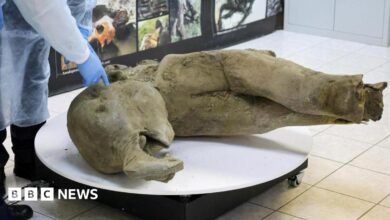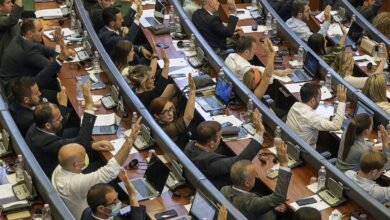Samuel Paty murder: Defendants face verdict over actions that led to beheading

Chnina and Sefrioui never called for action against Paty, and they were unaware of the existence of Anzorov until the killing took place.
But for the prosecution they were nonetheless guilty of “terrorist association”, because they knew of the possible consequences of their campaign.
“No-one is saying they wanted the death of Samuel Paty, but in lighting 1,000 digital fuses they knew that one of them would lead to jihadist violence against the teacher,” according to prosecution’s submission.
The context in October 2020 was one of heightened tensions over jihadist violence, after Charlie Hebdo republished some of the controversial Muhammad cartoons. Five years earlier most of the staff of the magazine had been murdered in a jihadist gun attack at their Paris office.
This week in court the longest jail terms were requested for the two friends of Anzorov who accompanied him when he bought a knife and a fake gun. One of them also drove Anzorov to the school on the afternoon of the attack.
Neither of these defendants is a radicalised Muslim, and it was not established in court that they knew of Anzorov’s plans.
That was why the prosecution downgraded the charge against them from “complicity in a terrorist attack” which carries a possible life sentence.
The four other accused are people with whom Anzorov conversed on chatlines, again without him ever revealing his intention to kill Paty.
One of these, a convert to Islam called Priscilla Mangel, admitted making “provocative” remarks online about the Paty case but said she would never have made them had she known Anzorov’s intentions.
“For me this was an anodyne discussion with an anonymous person.”
For defence lawyers, none of the accused would have faced criminal proceedings for what they said, had it not been for the murder of Paty.
So the key legal question facing the court is whether utterances can become illegal depending on what follows.
Source link



